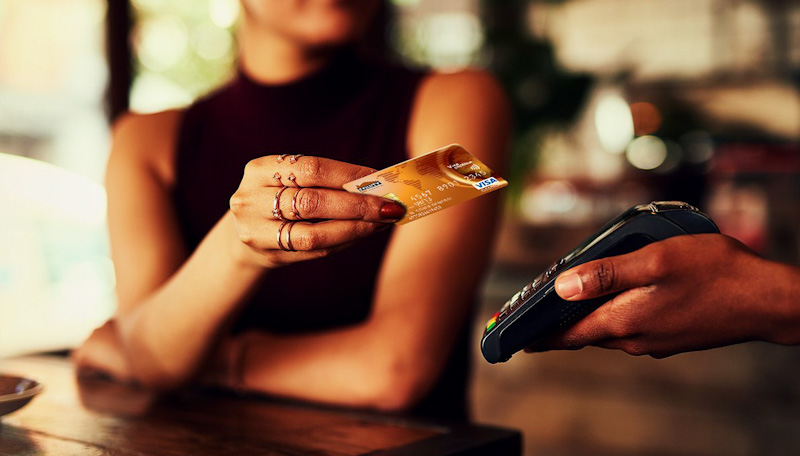How safe is your money in bank accounts? For most of us, “laughing all the way to the bank” applies when our bank accounts are ‘loaded’.
For the employed, this mostly happens at the end of the month, immediately after payday. For businessmen and women, this is common after a successful sale.
However, in this digital era where fraudsters are becoming increasingly innovative, we must keep up-to-date with the new tactics being employed so that we avoid falling prey to potential schemers who have a trend of targeting unsuspecting Kenyans mainly during the end month.
We tell you a short story about Anna and her friends from chama who booked a weekend staycation in Diani. Upon arrival at their accommodation, the ladies settled in and drew a shopping list for the items they would need for their vacation. The ladies then planned a shopping trip to stock up on missing items.
However, just as they were about to head out for shopping, something came up, and Anna decided not to accompany her friends shopping physically. After that, the string of decisions made by Anna resulted in her losing her money because she trusted someone too much.
The first big mistake
Anna decided that she would stay back, but to ensure that she played her part, she gave one of her chama friends her ATM card and PIN so that she could pay at the supermarket. If her card did not work, she also gave the said friend her mobile phone and the PIN to her mobile banking app.
Although the shopping trip went well and nothing out of the ordinary happened, Anna had exposed herself financially to someone she trusted and would pay for it dearly in the coming months.
Fast forward – 1 month later
A month later, the ladies had their monthly meeting at an entertainment spot, and after the Chama meeting, the ladies ordered meals and their drinks of choice and had a merry time. That night, Anna’s life changed as she lost a lot of money.
Anna woke up the following day and wanted to pay bills and buy airtime to catch up with her loved ones. However, every time she tried to do the same, her bank sent her a message notifying her that she had insufficient funds in her account—to the best of her recollection, she had enough money in her bank account. It was just 2nd Feb. Her salary had just been checked in!
Worried, Anna quickly visited her bank branch to report that something was wrong with her bank account and needed support.
The bank team quickly took her account details and printed her statement. According to the same, the night before, ‘she’ had sent money to mobile numbers that she did not recognize. The money was sent five times and in moderate amounts – not too small and not too big (13,000, 29,000, 52,000, 31,900 and 7,400)
Anna vehemently denied sending the money to the mobile numbers and working with her bank and the Police. An investigation was launched to find out what exactly happened that fateful night.
The investigation was comprehensive and revealed the following:
The calculated heist
The concerning bit about Anna’s case was that bank systems showed that her 4-digit PIN was used to allow the transactions to go through. If she did not do it, who did?
The investigative teams discovered that on the night she had the Chama meeting, she stepped away from her bag for a few minutes to socialize and mingle. This allowed her so-called “chama” friend to take her phone and access the same.
The CCTV footage revealed that the ‘friend’ moved to the next table, and together with the people sitting there, they were seen lining up several phones on the table, and it looked like they were confirming that transactions had gone through.
The time stamp on the CCTV footage and the mobile banking SMS messages were aligned, leading detectives to believe that Anna’s ‘friend’ knew her mobile banking password and was the one who transferred the money.
The CCTV footage took Anna down memory lane, and she remembered the fateful day in Diani when she willingly gave her friend her mobile banking PIN and did not remember to change this once she got her phone back.
Anna’s story reflects that of many Kenyans who continue to lose their money through the ingenious ways of fraudsters and scam artists.
How, then, can you protect your bank accounts from such cyber criminals?
- Do not share your mobile banking or ATM card PIN with your friends, immediate family or extended relatives.
- Do not let your card or mobile phone leave your sight or possession anytime, particularly when paying for goods and services.
- If your PIN has been compromised, you need to change it.
Banks such as Equity have invested in securing your account and have implemented measures to support their customers.
If you bank at Equity and have registered to use *247#, the Equitel lines, or the Equity Mobile App, here are a few essential points to note:
- Do NOT engage fraudsters on call or SMS – Equity will only call you through 0763 000 000.
- Do NOT share your PIN, Password or OTP with anyone, including your family, relatives, or friends.
- Do NOT give your phone or laptops to strangers, including those who purport to be from telcos.
- Do NOT share personal data with anyone, such as your account number, card/ CVV number, ID number, or date of birth.
- Do NOT share your bank statement/details online
- Do NOT use public wi-fi to do your online or mobile banking.
- Do NOT click on any suspicious links shared via email or SMS.
- Do NOT give anyone access to your Banking App or Telco SIM Card
- Report any suspicious number or SMS line to 333 for FREE
Stay alert and remember PIN YAKO SIRI YAKO! #KataaUtapeli #KaaChonjo




